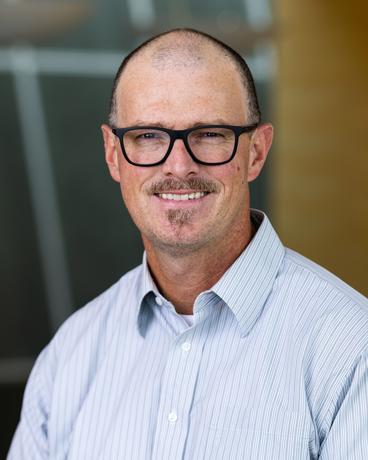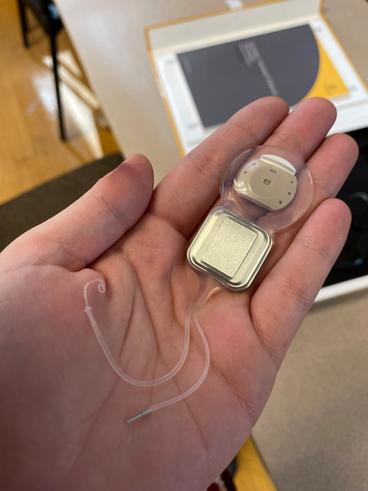Hearing Services for Children and Adults
More information coming soon, please contact the clinic about the availability of audiology services:
- 218-726-8199
- [email protected]
Robert F. Pierce Clinic looking to expand education and service offerings

April 2023 - Brent Fisher is an audiologist intent on helping the UMD Department of Communication Sciences and Disorders (CSD) amplify both its curriculum and services. He joined the department in 2022 as a tenure track assistant professor and specializes in cochlear implants. He’s interested in questions related to our ability to communicate and navigate the world around us.
As the field of audiology grows and changes, CSD is presented with new opportunities. The department’s education emphasis has traditionally focused more toward the area of speech-language pathology. Now the department is strengthening its audiology coursework, which makes this a prime moment for innovation in student lessons.
“We’re trying to support student needs as they approach society at large … using more of a hands-on learning structure,” explains Fisher.
The Robert F. Pierce (RFP) Speech-Language-Hearing Clinic has long provided a range of free services to the public, enlisting the help of CSD students in training. Most services are based around speech and language. Fisher and his colleagues are working to expand audiology offerings.
Making Audiology Accessible

One recent change in the field of audiology is the availability of over-the-counter hearing aids. Previously available only through prescription, people with mild-to-moderate hearing loss are now able to find hearing aids at most drugstores.
This is a significant development since many people with hearing loss don’t utilize hearing aids. Fisher says the idea is to make the technology more accessible. “It helps bring costs down to help those who aren’t ready for more of a commitment, like scheduling an appointment with an audiologist,” he says.
The goal is for the RPF Clinic to offer community-based services to people with hearing challenges—beyond basic hearing assessments. They are working on a plan so that the public can visit the RFP Clinic with questions about their hearing aids or help with general troubleshooting.
Fisher is in the process of implementing additional services. “Right now, I’m establishing vendor contracts with hearing device suppliers,” he says. “At some point, we hope to offer hearing devices, provide updates, and fit hearing devices for the community.”
Eventually, Fisher would like to see the clinic offer cochlear implant services, tinnitus assessment, and other specialized research. “We aim to provide valuable services that help support understanding of how we communicate and process speech sounds,” he says.
These services range from offering hearing devices to providing assessments of children with craniofacial anomalies—all different areas of audiology, some even combining with other disciplines.
“We’re looking at our provided services and treatment services,” says Fisher. “We’ve discussed potentially collaborating with St. Scholastica’s physical therapy program to combine balance work.”
These changes will clearly benefit the community through expanded services. Expanded curriculum will also add value to the education CSD students are receiving—a sound investment, since audiology jobs are expected to grow 10 percent from 2021 to 2031.
Article by Erika Doetkott, a recent graduate of the Communication Sciences and Disorders undergraduate program.